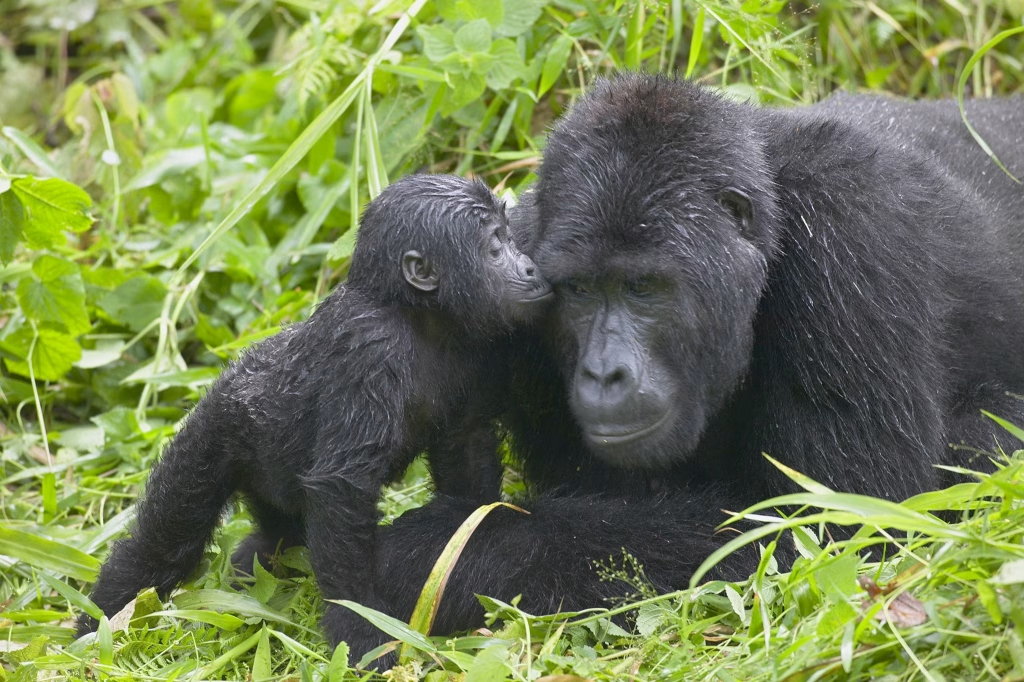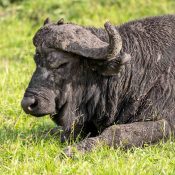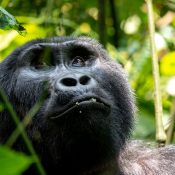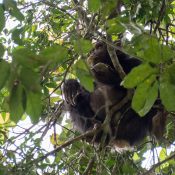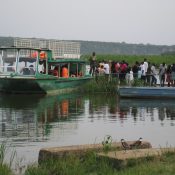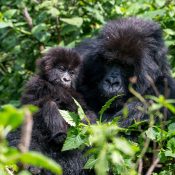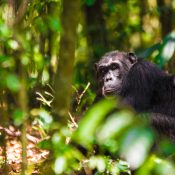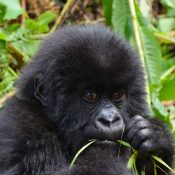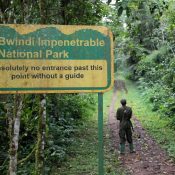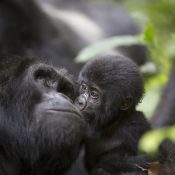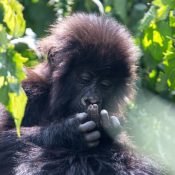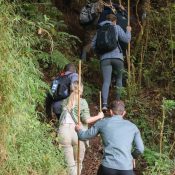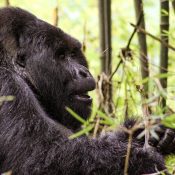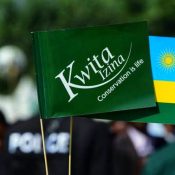Planning a gorilla trekking safari in Uganda’s Bwindi Impenetrable National Park or Mgahinga Gorilla National Park? One of the most common questions from travelers is: “What should I pack?” With gorilla permits, transport, and accommodations already sorted, focusing on the right gear ensures a safe, comfortable, and unforgettable experience. The terrain is rugged, the weather unpredictable, and the trek can last from 30 minutes to 8 hours, so preparation is key.
This packing list applies to both Ugandan parks (and similarly to Rwanda’s Volcanoes National Park). It’s tailored for the trekking day itself—if your itinerary includes wildlife safaris or other activities, you may need additional items like binoculars for game drives. For combined tours or personalized advice, contact a trusted operator like Encounter Africa Safaris.
Must-Have Essentials
Hiking Boots
Sturdy, lightweight hiking boots are non-negotiable for navigating steep, muddy slopes and dense vegetation. Opt for waterproof models with good ankle support to handle the forest’s challenging terrain and high altitude. Break them in before your trip to avoid blisters.
Garden or Hiking Gloves
Protect your hands from thorns, stinging nettles, slippery roots, and insects with a pair of fitted gloves. They’re especially useful for gripping plants or your walking stick (provided by guides). Small-fitting hiking gloves are ideal and can prevent scratches or infections.
Waterproof Jacket or Poncho
Bwindi’s tropical rainforest sees rain year-round, even in drier months like June–September. A lightweight, packable rain jacket or poncho will keep you dry without weighing you down. Avoid the peak rainy seasons (March–May) if possible, but always pack for sudden showers.
Long-Sleeved Shirts and Trousers
Layer up with breathable, long-sleeved shirts and quick-dry trousers to shield against insects, scratches, and sun. Neutral colors (khaki or green) are best—avoid bright hues or camouflage, which can startle wildlife. Tuck trousers into your boots to block safari ants and ticks.
Backpack and Packed Lunch
A comfortable daypack (20–30L) is essential for carrying your gear. Include a packed lunch from your lodge and plenty of drinking water (at least 2–3 liters), as treks can extend unexpectedly. Refillable bottles are eco-friendly; guides can point out safe water sources.
Energy-Boosting Snacks
Fuel your hike with high-energy snacks like nuts, energy bars, or dried fruit. Buy them at a local supermarket in Uganda upon arrival—ask your guide for recommendations. These will sustain you during long treks requiring moderate fitness.
Camera and Extra Batteries
Capture the magic of your one-hour gorilla encounter (flash photography is prohibited to avoid stressing the animals). Charge your camera fully and pack spare batteries or a power bank. Focus on steady shots—move slowly to not disturb the group.
Optional but Recommended Items
Hat, Sunglasses, and Sunscreen
Even under the forest canopy, sun exposure is possible. A wide-brimmed hat and UV-protective sunglasses, plus broad-spectrum sunscreen, will guard against rays during clearer moments.
Trekking Poles and Gaiters
Rented or brought trekking poles provide stability on uneven ground. Gaiters help keep mud and debris out of your boots, especially in wet conditions.
Insect Repellent
The forest buzzes with bugs—pack DEET-based repellent for skin and permethrin-treated clothing for extra protection.
Earplugs
Jungle sounds can be intense; earplugs offer relief if needed during the hike or overnight stays.
Binoculars
Spot birds (over 350 species in Bwindi), chimpanzees, colobus monkeys, or forest elephants en route. Compact models are perfect for your pack.
Hire a Porter
For $15–20 USD, local porters (often students funding their education) will carry your daypack, offer a hand on steep sections, and support community development. It’s a worthwhile investment for strenuous treks and a chance to give back.
Final Tips
- Health and Safety: Consult a doctor for vaccinations and malaria prophylaxis. If you’re not moderately fit, consider a porter or shorter trek options.
- Sustainability: Pack out all trash to protect the gorillas from human impact.
- Permit Costs (2025): Expect $800 USD per person for a standard permit—book 12–18 months ahead for peak seasons.
With the right packing, you’ll focus on the awe-inspiring gorillas rather than discomfort. Ready for your lifetime adventure? Reach out to Encounter Africa Safaris for tailored tours starting from Entebbe or Kigali.
Talk to our experts
Recent Posts
African Buffalo: The Unpredictable Giant of the Savannah
Gorilla Habituation in Bwindi Impenerable Park
Chimpanzee Trekking in Kyambura Gorge: The Ultimate Guide
Discover Lake Mburo National Park: Your Ultimate Safari Adventure Guide
Kazinga channel boat cruise
Uganda Gorilla Tours.
Chimpanzee trekking in Uganda.
Gorilla Trekking in Uganda.
Gorilla Trekking Guide for Bwindi and Mgahinga National Parks (2025
Essential Packing List for Your Gorilla Trekking Adventure in Uganda (2025 Guide)
Gorilla Trekking Rules
Gorilla Trekking Tours: Exploring the World of Mountain Gorillas
10 Essential Facts About Mountain Gorillas for Trekking Enthusiasts
Where do mountain gorillas live
What you need to know about Silverback Gorillas
Booking Gorilla Trekking Permit
Ceremonial naming of a gorilla in Rwanda
Tags
Start Planning
Info@inmotiongorillasafaris.com
TALK TO AN EXPERT
Explore breathtaking destinations, unique cultural experiences, and unforgettable journeys. Start your adventure today with our tailored travel packages.
